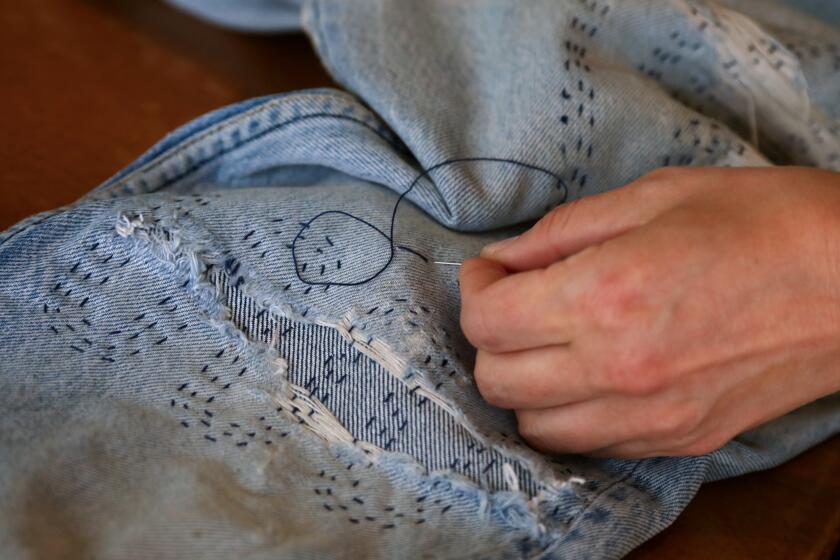Coming clean on ‘sonic’ brushes
Your first toothbrush probably didn’t come with a user’s manual. You picked the thing up, put it in your mouth, moved it across your teeth in a vaguely up-and-down fashion, and called it good.
Old-school toothbrushes are still the norm in medicine cabinets everywhere. Dentists hand them out for free by the ton, and stores sell them for a few bucks apiece. Rotary brushes powered by AAA batteries that cost $10 are another popular option. But scan those store shelves, and you can find “sonic” toothbrushes that take oral hygiene to a new level of technological sophistication, not to mention a new stratosphere of price.
But do you really need to spend more than $100 for a decent toothbrush?
If you’re willing to spend that kind of money, here’s what you get. The Sonicare FlexCare toothbrush from Philips, sold for about $130, comes with an electric motor that creates a “high amplitude and high frequency bristle motion,” meaning the brush moves up and down at a speed that no AAA battery can match. Users can select one of five modes, including a gentle motion for gums. The brush comes with a timer to encourage brushing for a full two minutes.
The Oral-B Triumph, which sells for about $150, cleans teeth with an “oscillating-rotating” action, essentially making it a more intense version of the much cheaper rotary brushes. A sensor warns if you’re pressing too hard, and an electronic reminder tells you when it’s time to change heads. It runs in four different modes, including gum massage and tooth polishing.
Each toothbrush is rechargeable, so you don’t need to replace batteries. Both brands sell packs of three replacement heads for about $25. --
The claims
The Oral-B website says the brush “cleans between teeth to sweep away plaque for a floss-like clean.” It also says that using the Oral-B brush is like having a “dental professional in your bathroom.” The Sonicare site says that the FlexCare brush’s “patented sonic technology is proven to be powerfully effective yet remarkably gentle.”
--
The bottom line
An old-fashioned manual toothbrush can certainly clean teeth, but few people use such brushes well enough or long enough to truly prevent cavities or gum disease, says Chris Kammer, a dentist in Middleton, Wis., and a founding member of the American Academy of Cosmetic Dentistry.
Kammer cites surveys showing that 80% of Americans have some type of gum disease, caused by a buildup of plaque along the gumline. “As a nation, we are not getting the job done,” he says. The Oral-B Triumph and the FlexCare have the action needed to remove plaque and protect teeth and gums, he says. “All a person has to do is hold it up to the teeth, and it does the work of plaque removal. You’re just not going to be able to do as good a job with a manual toothbrush.” Kammer adds that cheaper rotary brushes don’t have the same cleaning action and “last about as long as you’d expect a $10 brush to last.”
After long recommending the Oral B Triumph to patients, Kammer recently gave the Sonicare FlexCare a trial run and was equally pleased with the results. “It almost felt like I had just had my teeth professionally cleaned,” he says.
Kammer believes that people who spend $150 or so on a new toothbrush will almost automatically become more diligent about brushing. “I want people to get excited about the bells and whistles,” he says. “Nobody is going to fall in love with a manual toothbrush.”
A 2004 review of 29 studies published in the Journal of Dentistry found that high-power sonic brushes like those made by Sonicare and Oral-B effectively removed plaque and prevented gum disease, but there was no conclusive evidence that the brushes worked any better than manual toothbrushes. A randomized study conducted by Philips researchers and published in a 2008 issue of the Journal of Clinical Dentistry found that the Sonicare Elite (another model of power toothbrush) removed 16% more plaque than a manual toothbrush after four weeks. Researchers had instructed all subjects to brush for two full minutes, twice a day.
Not every dentist is convinced that power toothbrushes are worth the money. “My family and I are able to get excellent results with an old-fashioned soft manual toothbrush,” says Paul Hettinger, a family dentist in Orlando, Fla. who has been in practice for more than 20 years. “I have been given several electric toothbrushes by various vendors, but I have never taken one home.”
Hettinger acknowledges that most people don’t use manual toothbrushes properly. An expensive power brush might be a better choice for people who don’t have the dexterity to handle a manual brush, he says. It also might be a good choice for anyone who lacks the patience to brush for a full two minutes. A user who brushes for only one minute “needs all of the help he can get,” he says.
--






